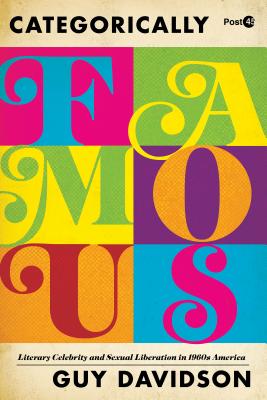 Categorically Famous: Literary Celebrity
Categorically Famous: Literary Celebrity
and Sexual Liberation in 1960s America
by Guy Davidson
Stanford Univ. Press. 227 pages, $30.
 A Voice of the Warm: The Life of Rod McKuen
A Voice of the Warm: The Life of Rod McKuen
by Barry Alfonso
Backbeat. 256 pages, $29.95
GUY DAVIDSON, a professor at the University of Wollongong (about an hour south of Sydney), begins his book about James Baldwin, Susan Sontag, and Gore Vidal with another American writer: John Cheever. In 1992, during an episode of Seinfeld called “The Cheever Letters,” George Costanza learns that the father of his fiancée Susan had once carried on a correspondence with the famously closeted author of Falconer, who resisted not only public awareness but also self-knowledge of his homosexuality until late in life.
Baldwin, Sontag, and Vidal refused to come out as well, but their sexuality was always what Davidson calls an “open secret.” And yet, Davidson says in the introduction to this fascinating study of 1960s culture: “If Cheever has become a byword for the dramatic move from the closet to visibility that liberation entails, these three writers, I suggest, manifest proto-visibility during the decade in which liberation emerged.”
Proto-visibility means their homosexuality was visible before homosexuality itself could be acknowledged publicly—which is why Davidson devotes an entire chapter to the shock when William F. Buckley called Gore Vidal a “queer” on network television while the two were covering the 1968 Democratic presidential convention. To be fair, Vidal had just called Buckley a “crypto-Nazi,” but the actor Paul Newman, a friend of Vidal, went to Buckley afterwards and pointed out that Vidal’s accusation was political, while Buckley’s was personal. Davidson’s book is about the way, during the decade before Stonewall, these two concepts began to merge, and how all three of his writers had to dance, as if on hot coals, in the dwindling space between the two.
Andrew Holleran is the author of the novelsDancer from the Dance, Nights in Aruba, The Beauty of Men, andGrief.







